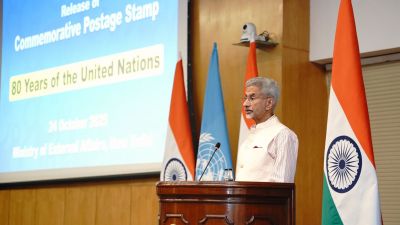Superpower and Upstart: Sometimes It Ends Well
Greek historian Thucydides knew fear can trap states into war.
For a superpower,dealing with the fast rise of a rich,brash competitor has always been an iffy thing.
Just ask the British,who a century ago were struggling to come to terms with the erosion of their status as the worlds No. 1 empire. It didnt help that they were being upstaged by a former colony that had turned into an upstart sea-power with money,talent,and a knack for mangling a perfectly good language. Eventually they took the hit to the national ego from those Americans and discovered there were advantages to no longer playing the role of the indispensible power.
Or ask Thucydides,the Athenian historian whose tome on the Peloponnesian War has ruined many a college freshmans weekend. The line they had to remember for the test was his conclusion: What made war inevitable was the growth of Athenian power and the fear which this caused in Sparta.
So while no official would say so publicly as President Hu Jintao bounced from the White House to meetings with business leaders to factories in Chicago last week,his visit,from both sides points of view,was all about managing Chinas rise and defusing the fears that it triggers. Both Hu and President Obama seemed desperate to avoid what Graham Allison of Harvard University has labeled the Thucydides Trapthat deadly combination of calculation and emotion that,over the years,can turn healthy rivalry into antagonism or worse.
It was striking,in fact,just how carefully both sides had used the past five monthsin letters and phone calls between the presidents and quiet shuttling between Beijing and Washingtonto diffuse fears that have already cropped up on both sides. Consider what happened when Hu,a man who never wanders far from his notes and cue cards,entered the Oval Office on Wednesday morning after a private dinner the night before in the White House residence. He made a presentation to Obama about Chinas challenges at home: Low per-capita income,huge disparities between rich and poor,badly polluted cities,a social safety net with holes big enough for 1.3 billion people to slip through. It was a remarkable,if stiff,highlighting of Chinas limits,not its new powers.
The message seems to be you dont need to fear us,but you also should know that we cant do everything you want, said Jeffrey A. Bader,Obamas top Asia adviser. And by the way,both of those statements are true.
Obama went to this summit with a few quiet advantages. Chinas muscular moves in the past yeartangling with Japan over territory,with Google over Internet freedom and with the West over continued exports of missile technology to Iranhad shaken its neighbours in Asia. Joseph Nye,in a new book called The Future of Power,notes that fear can work to Washingtons advantage. The rise of Chinese power in Asia is contested both by India and Japan, he wrote,and that provides a major power advantage to the US by driving them closer to Washington.
In an interview,Thomas E. Donilon,the national security adviser,said the effort to draw Chinas leaders back onto a path of cooperation was an elaborate one,beginning with a quiet trip he took to Beijing in September with Lawrence H. Summers,then Obamas top economic adviser,during which they laid plans for Hus visit this year.
They arrived in Beijing with details of what the summit visit would look like,along with a schedule of visits by top American officials in advance of it. Those visits culminated in one earlier this month by Defense Secretary Robert Gates. It signalled a resumption of military-to-military talks that the Chinese had halted after Obama invited the Dalai Lama to the White House and approved an arms package to Taiwan early last year.
Back home,Obama,in letters and phone calls,had been mixing his customary assurances that he has no interest in containing Chinas rise with a new strategy to persuade Beijing that it should no longer treat the Kim family dynasty in North Korea with kid gloves.
Obama approved military exercises in response to the North Korean shelling of a South Korean island that killed 46 people. Last Tuesday,said an official who was familiar with the dinner conversation,Obama made it clear that this is the kind of thing we are going to have to do if the North Koreans continue to act this way. China may be getting the hint: Hu approved,at the last minute,language in a joint statement criticising North Korea for secretly building a uranium enrichment facility.
Will any of this stick? Who knows,but dont expect much revived talk of a G-2, a fantasy among some,several years ago,that the world would soon be run by joint action between Beijing and Washington. The lesson of the last two years is that the two powers interests diverge more often than they overlap.
Meanwhile,Thucydides might be appalled at the nationalistic talk that resounds in both countries. In Chinese newspapers these days,its hard to avoid accounts of American decline. Meanwhile,some new members of Congress talk lightly of cutting off Chinese access to the American marketas if that could happen in todays global economy. In both languages,thats fear talking. DAVID E. SANGER





- 01
- 02
- 03
- 04
- 05


























